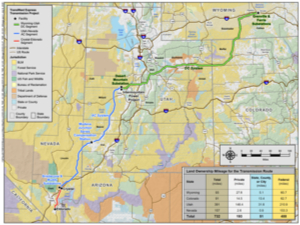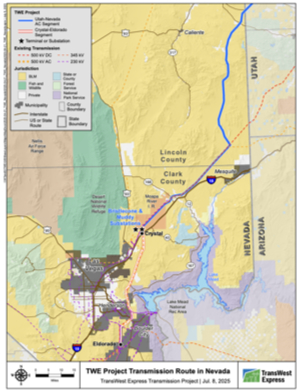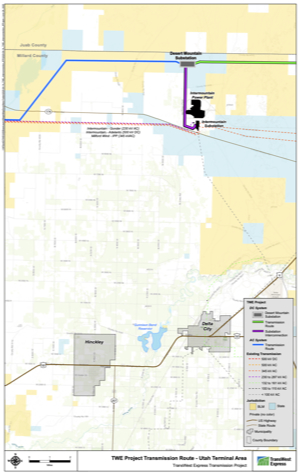Maps and visuals
The route for the electricity transmission line is approximately 732 miles in length, with a typical right-of-way width of 250 feet. Substations/converter stations will be constructed at interconnection points in Wyoming, Utah and Nevada.
Power line design
Along the route, transmission structure heights may vary from 100 feet to 180 feet depending upon structure type, terrain, span and line crossings. The span between structures may vary from 900 to 1,500 feet. The AC structures will look very similar to the DC structures.
DC line structures

| Single-circuit steel-lattice self-supporting structure |
Single-circuit monopole tubular steel structure |
Single-circuit guyed structure |
|---|
Stay informed
![]() Join TransWest's email list to receive periodic updates and meeting notifications.
Join TransWest's email list to receive periodic updates and meeting notifications.
 Follow us on X/Twitter.
Follow us on X/Twitter.
In the news
"Transmission is the biggest barrier to the development of Wyoming's considerable wind energy resources. But not only do we need to build the lines to carry this renewable energy to market, these lines must be 'right-sized' from the start. The key is to get the maximum number of electrons transferred with the least amount of environmental disturbance."
- Wyoming Governor Dave Freudenthal, 2009


